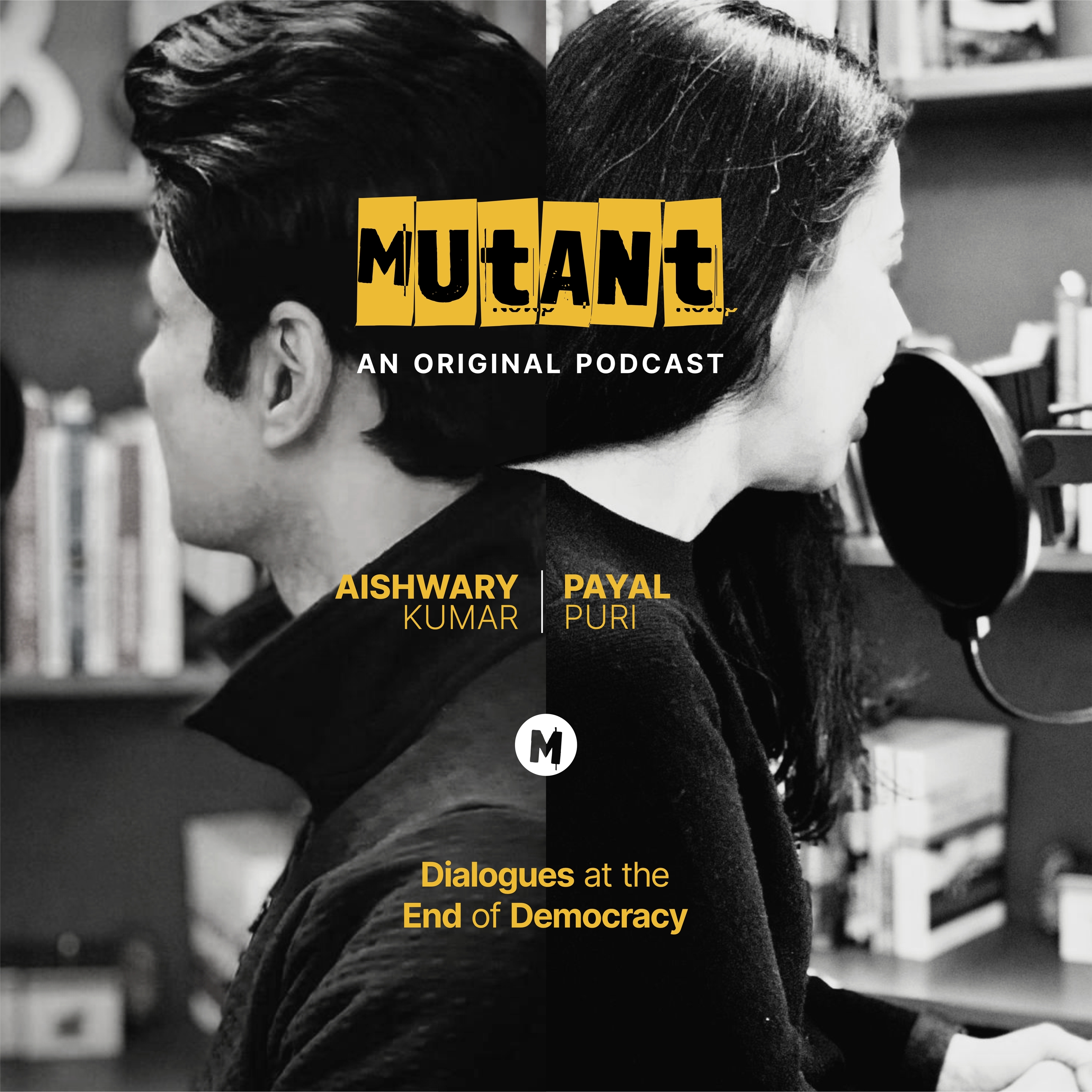Mutant: Dialogues at the End of Democracy
As violence against persons and things reaches a slow, catastrophic intensity worldwide; as the political and planetary become profoundly intertwined; as the deformity in our language thwarts our very ability to think about this suicidal moment in global politics and in human affairs as such, the brilliant thinker and scholar Aishwary Kumar (in LA) and editor-interlocutor Payal Puri (in New Delhi) begin a sustained, rigorous excavation of a deceptively simple question: What is up with democracy? Taking as our starting point the 26 letters of the Roman alphabet, we create an alphabet of global political thought; a rigorous recuperation of the...
Q | QUESTION
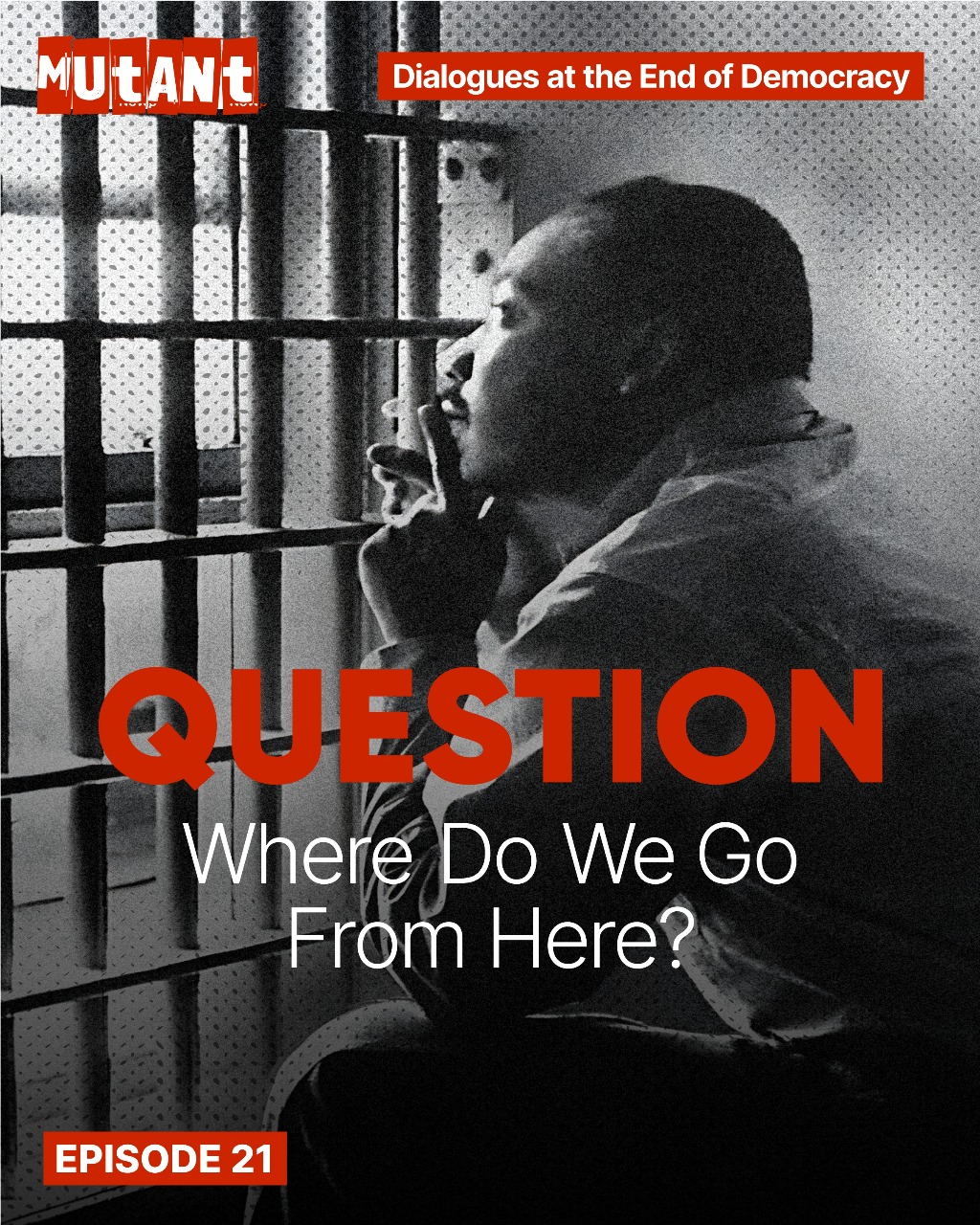
Has America given up its “pursuit of happiness”? Why do we ask so many questions? "How does it feel to be a problem?" Du Bois asks in a searing passage of his 1903 masterwork The Souls of Black Folk. Of all the openings that Civil Rights political thought makes in modern democratic rhetoric, perhaps the most powerful and overlooked one is its use of the question (and the pause).
What if the question carries in itself not simply a moral demand but a right to logic? A systematic rethinking of the relation between truth and method not from the c...
G | GOVERNMENT
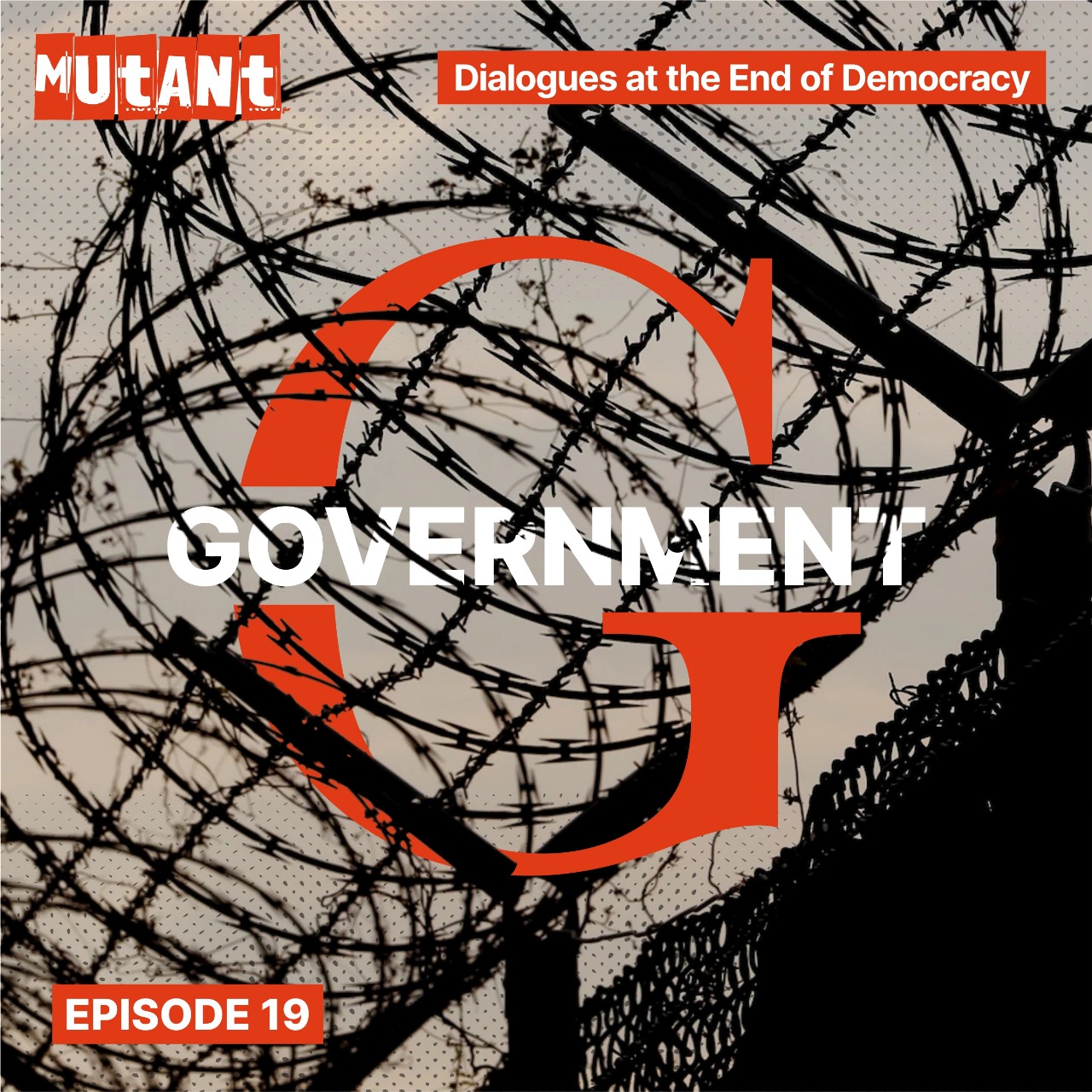
Watching the scale, speed, and lawless ease with which some of the most storied postwar American institutions have been attacked and dismantled in the past month makes it tempting to see this resurgent hatred against the government as an anomaly, at best a degenerate aberration even.
The truth however is that for as long as there has been the idea of government in the modern world, there has been a stubborn strain of hatred against it. For as long as there has been the question of human need, there has been the fear of the government taking...
S | SACRIFICE
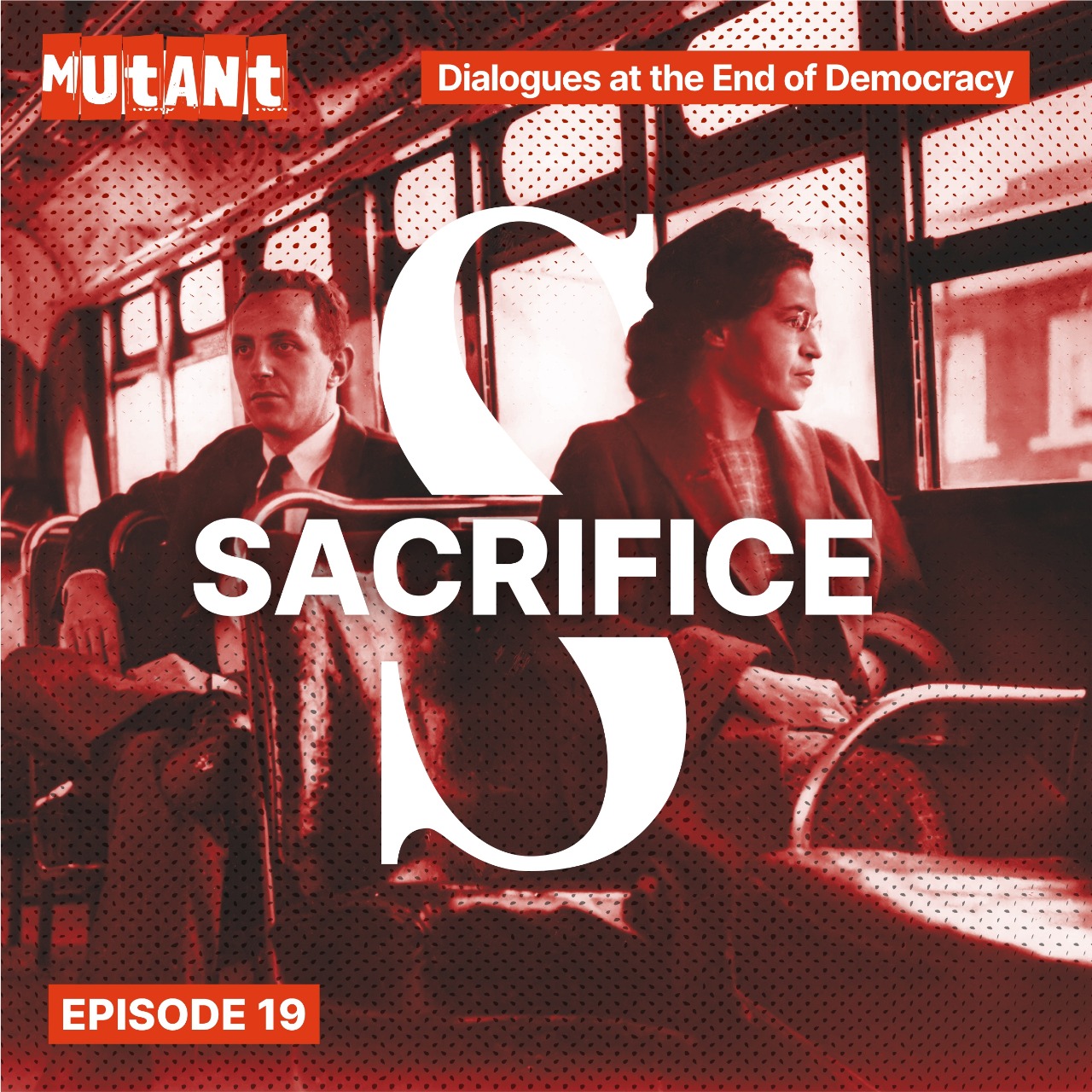
Few words in our democratic language invoke visions as paradoxical and as powerful as sacrifice.
On the one hand, sacrifice recalls an archaic, ritualistic, even fetishistic set of practices, executed in the name of a sovereign power that draws its sanction from the theological, the divine right to rule.
On the other hand is the transcendent world that sacrifice opens up with its vision of an equal, just life (or afterlife), of a more bearable world one wants to leave behind for others if one dies dreaming and fighting for it. This dreamy, sleepless, transcendent...
E | EQUALITY
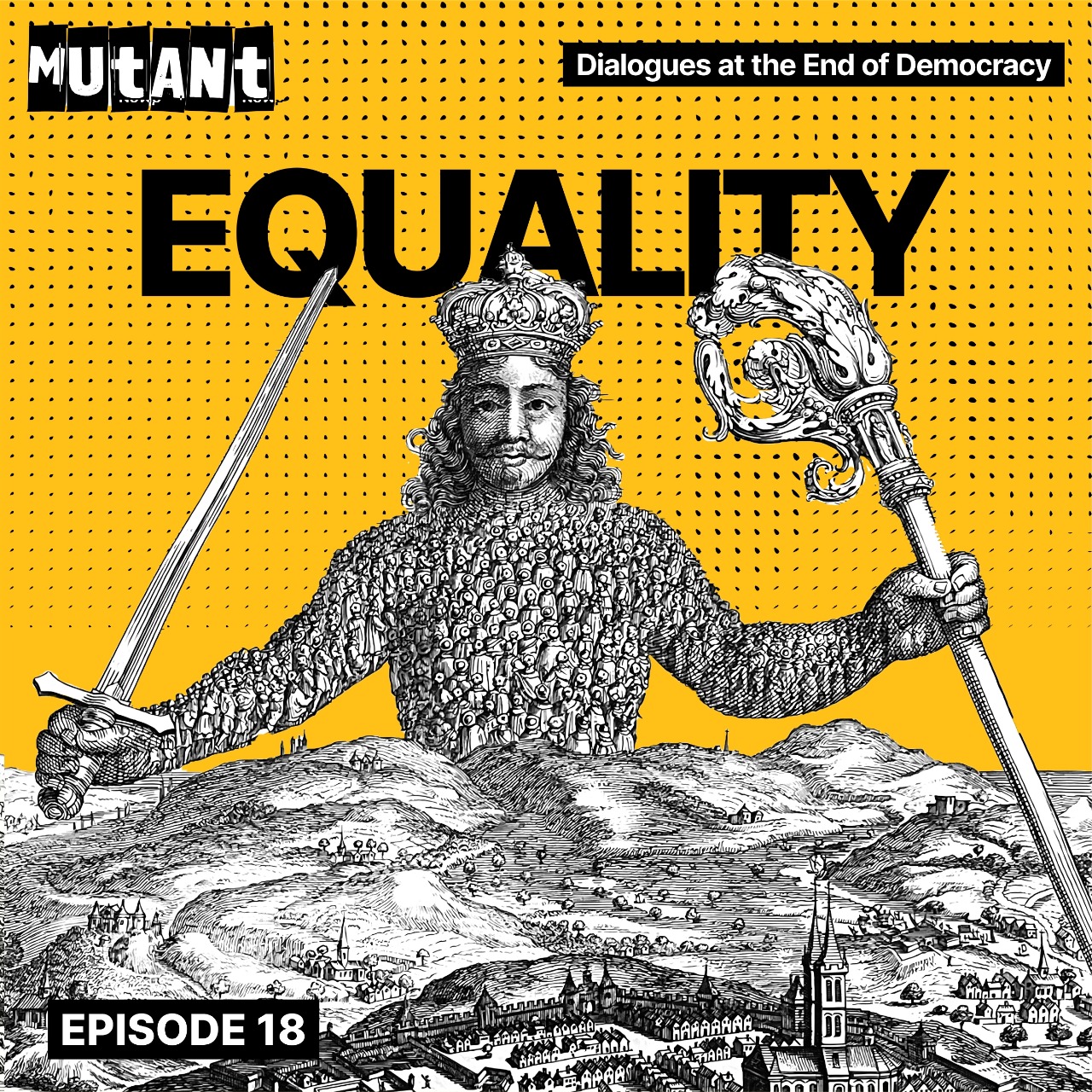
We have so far traversed almost two dozen concepts at Mutant. And yet every word thought and spoken in these dialogues, it might be said, is about one humane dream: equality. Every episode in which we have spoken of caste, of the figure of the migrant, of the logics of segregation, of thinkers of the Black radical tradition; every reckoning we have made with our neodemocratic condition, with its cruelty and the decomposition of the human, and with our abandonment of the social contract, has returned us to the strange absence of moral and political equality on our planet.<...
D | DISAPPOINTMENT
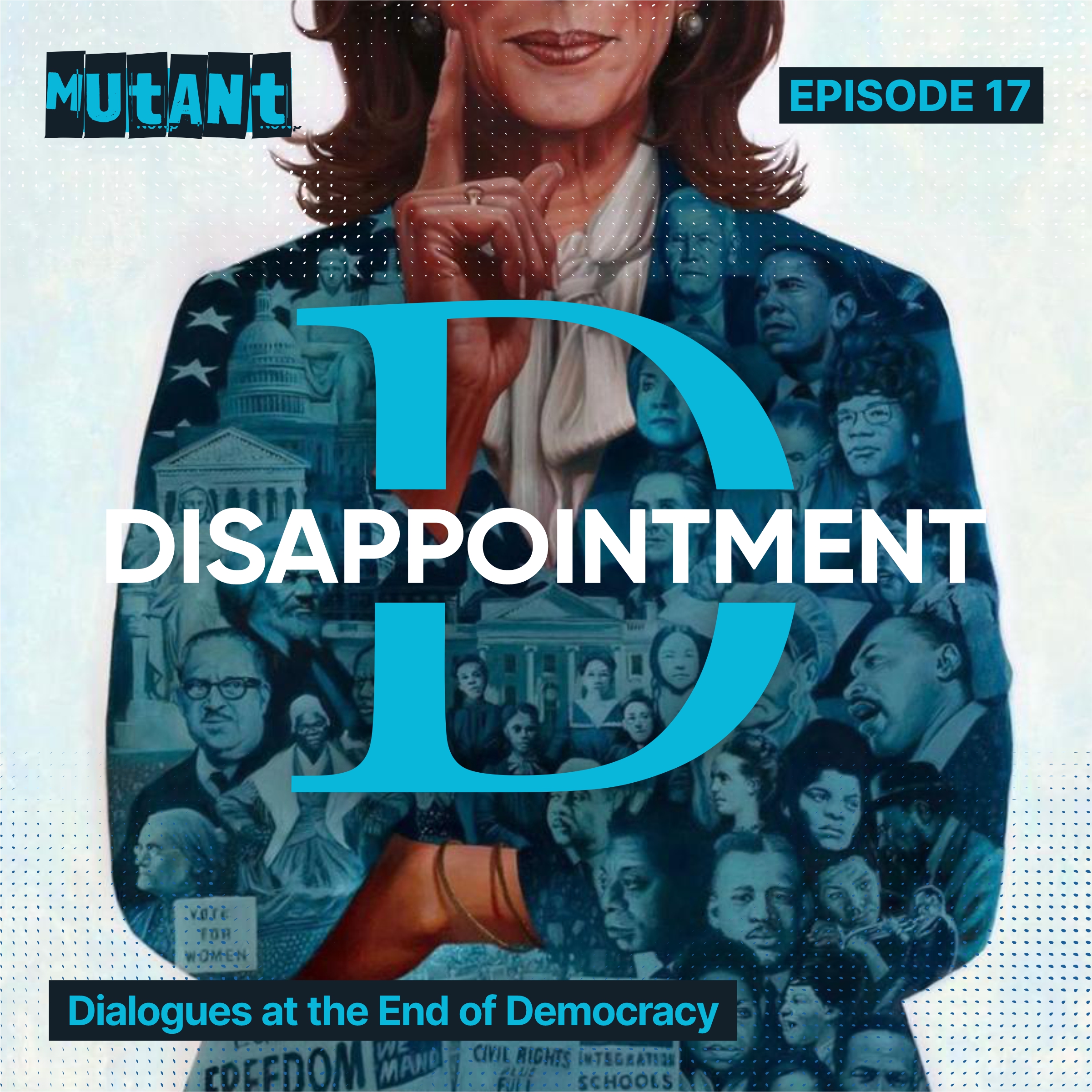
Often shrugged off as a passing sense of dejection in a world that has let us down, “disappointment” might be the most intransigent concept that has shaped the modern democratic experiment. Rarely thought of as a political concept at all, let alone as a passion foundational to democracy, disappointment, Aishwary argues, returns us to a heightened state of loss; a sense of ending of a future and a world that barely moments ago seemed within grasp. From such a heightened state of crestfallen grief alone can we truthfully and responsibly think about the fragility of our democratic faith.
In fa...
F | FEAR
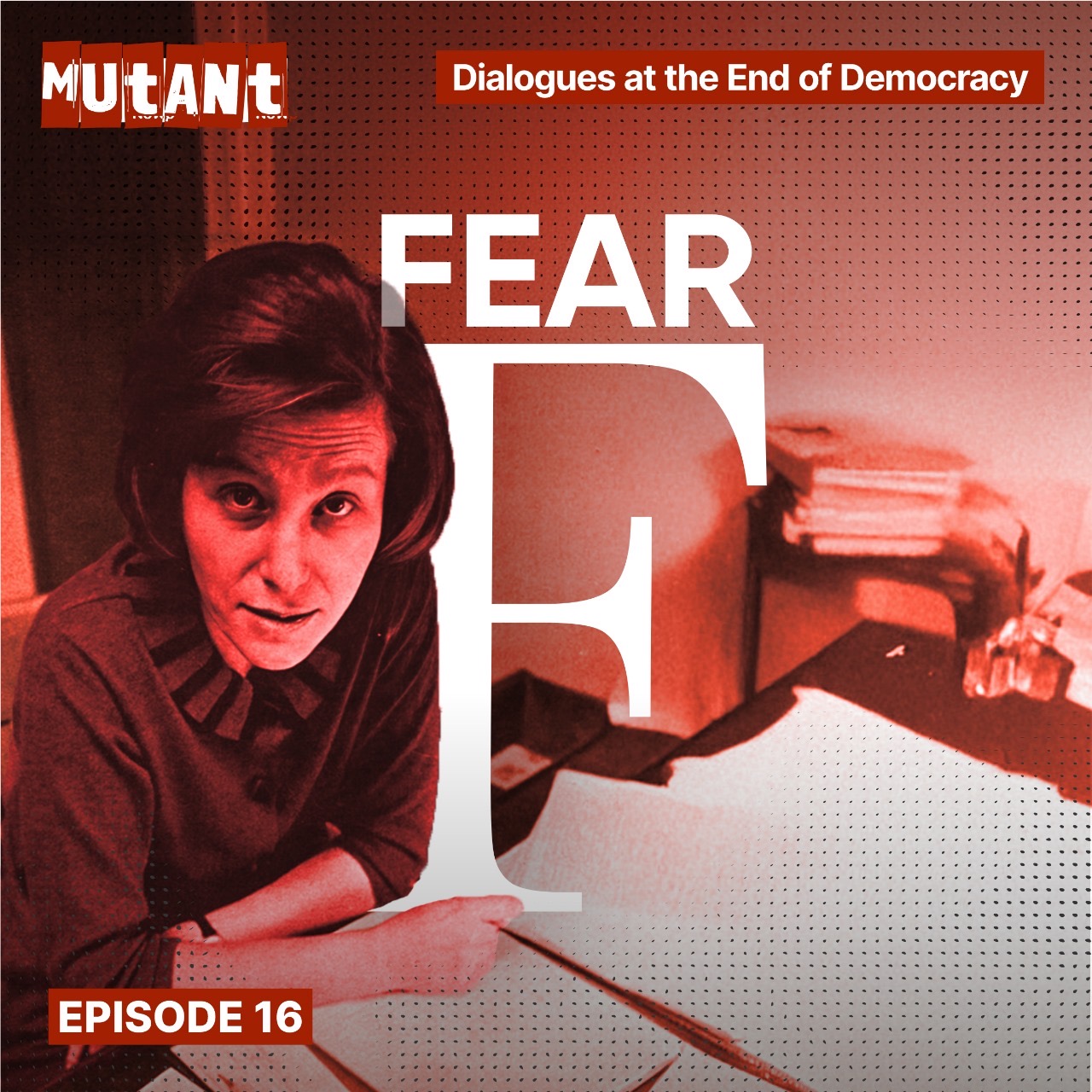
If freedom is the most molecular of human desires and hope the most fragile of human capacities, then fear is an all too human anxiety—or weapon—that destroys both, in one stroke.
Whether this is the mortal fear of losing one’s own freedom, or the fear of losing power over another—the power to give oneself an unbridled freedom to rule over others—the connection between fear and freedom is more elemental than we often acknowledge. “Absolute freedom is absolute, radical evil,” says Aishwary Kumar. “The willingness to say that our freedom is boundless—or that it should hav...
F | FREEDOM
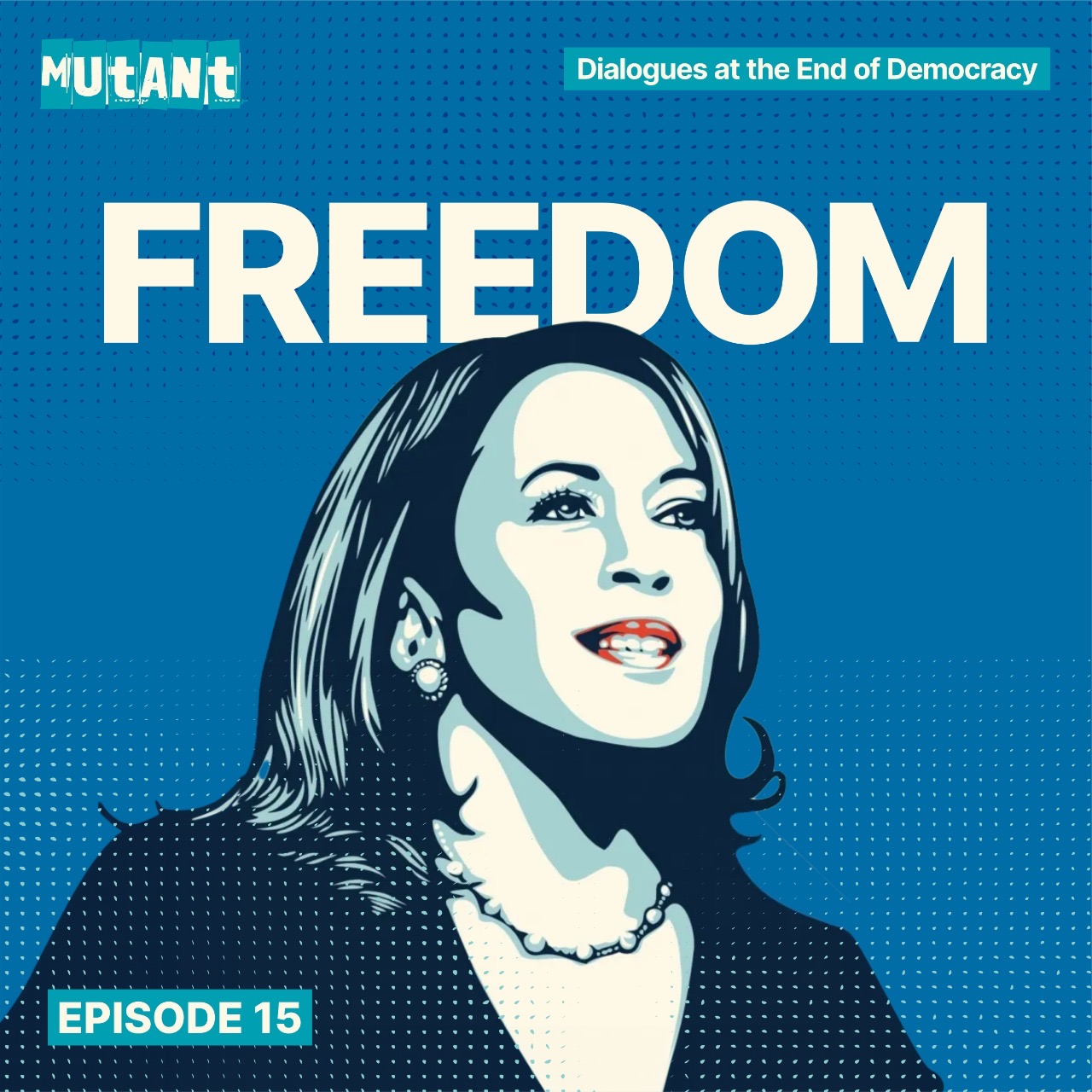
No idea in our political lexicon is as deeply mired in paradox as freedom. One is wholly alive, wholly human, we are often told, only when one is wholly free. Free to move, free from constraint, free from tyranny. And yet, also comes with this liberty from constraint—this thing the Latvian-British historian and philosopher Isaiah Berlin almost 70 years ago famously called “negative liberty”—the dangerous license to violate others, to disparage and desecrate the lives of others, to be so drawn to cruelty as to become anti-human, pure and simple.
Freedom is a desire so molecular it might...
O | OCCUPATION
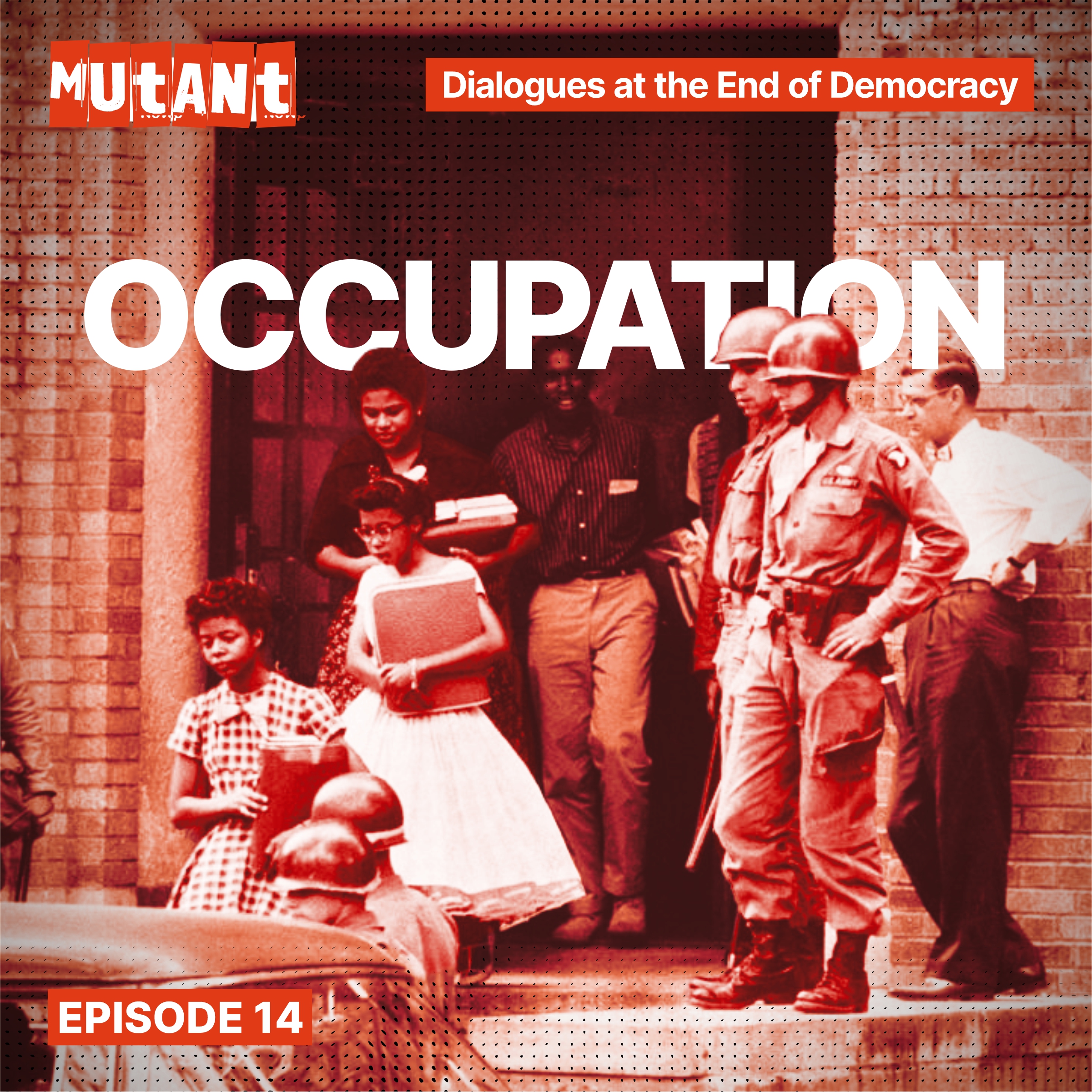
“We lost our home, which means the familiarity of daily life. We lost our occupation, which means the confidence that we are of some use in this world. We lost our language, which means the naturalness of reactions, the simplicity of gestures, the unaffected expression of feelings…our best friends have been killed in concentration camps, and that means the rupture of our private lives.” — Arendt, We Refugees (1943).
What of oneself is lost—dispossessed—when one is possessed, owned and abandoned at the same time, by an occupier? Few thinkers open up the abyss of alienation that sprawls under...
R | RIGHT & RESENTMENT
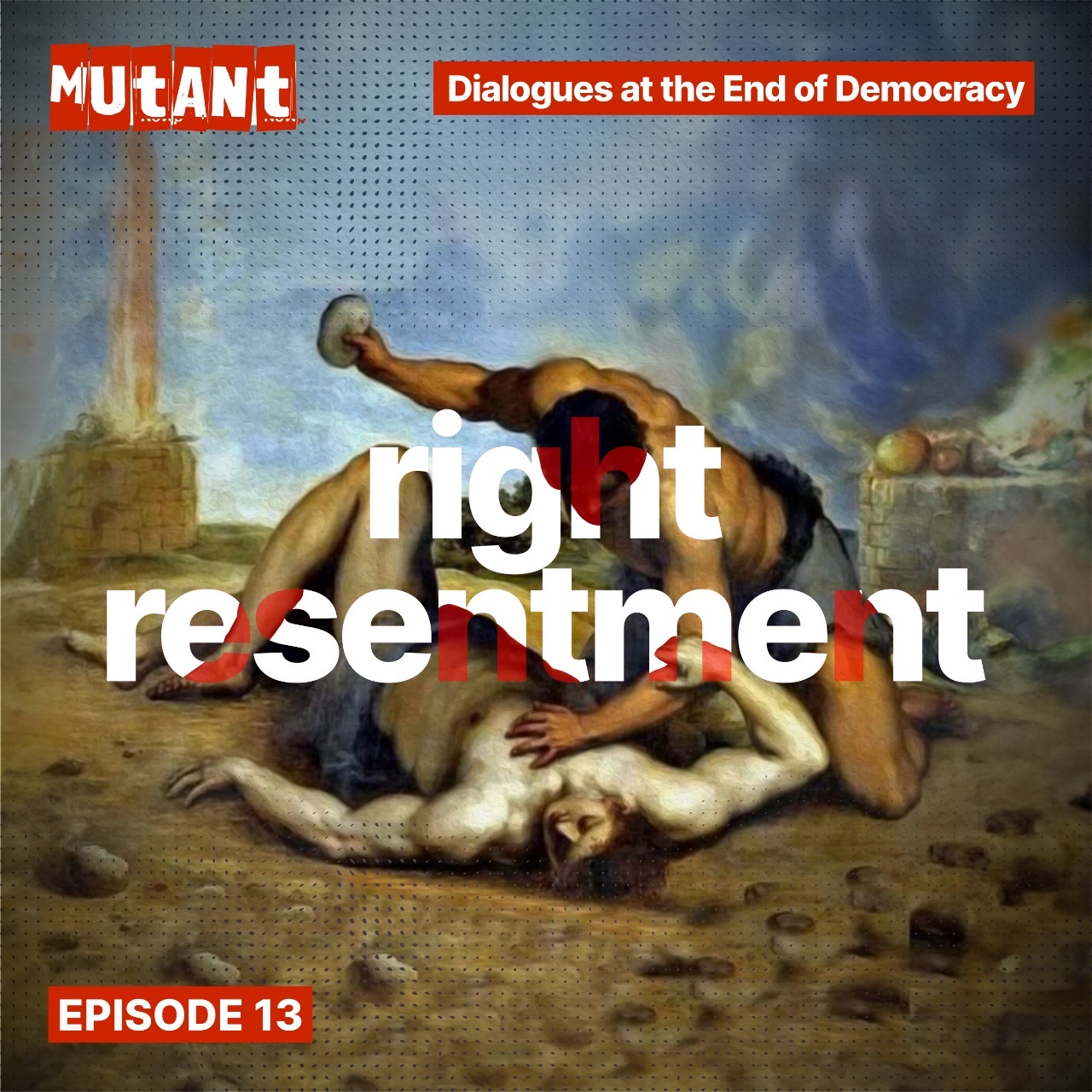
Mutant’s first episode was an archaeology of democratic anger, and as we publish our 13th, almost midway through the Roman alphabet, we return to our beginnings; to a concept that silently saturates our political condition, bubbling corrosively in the shadow of that which it is too often conflated with, even though they belong to two fundamentally different orders.
Resentment.
Silence clouds our understanding of resentment no more and no less than it defines it. Because silence is endemic to the seething, destructive force of political and civic resentment.
If anger has democratic potential, it...
H | HOPE
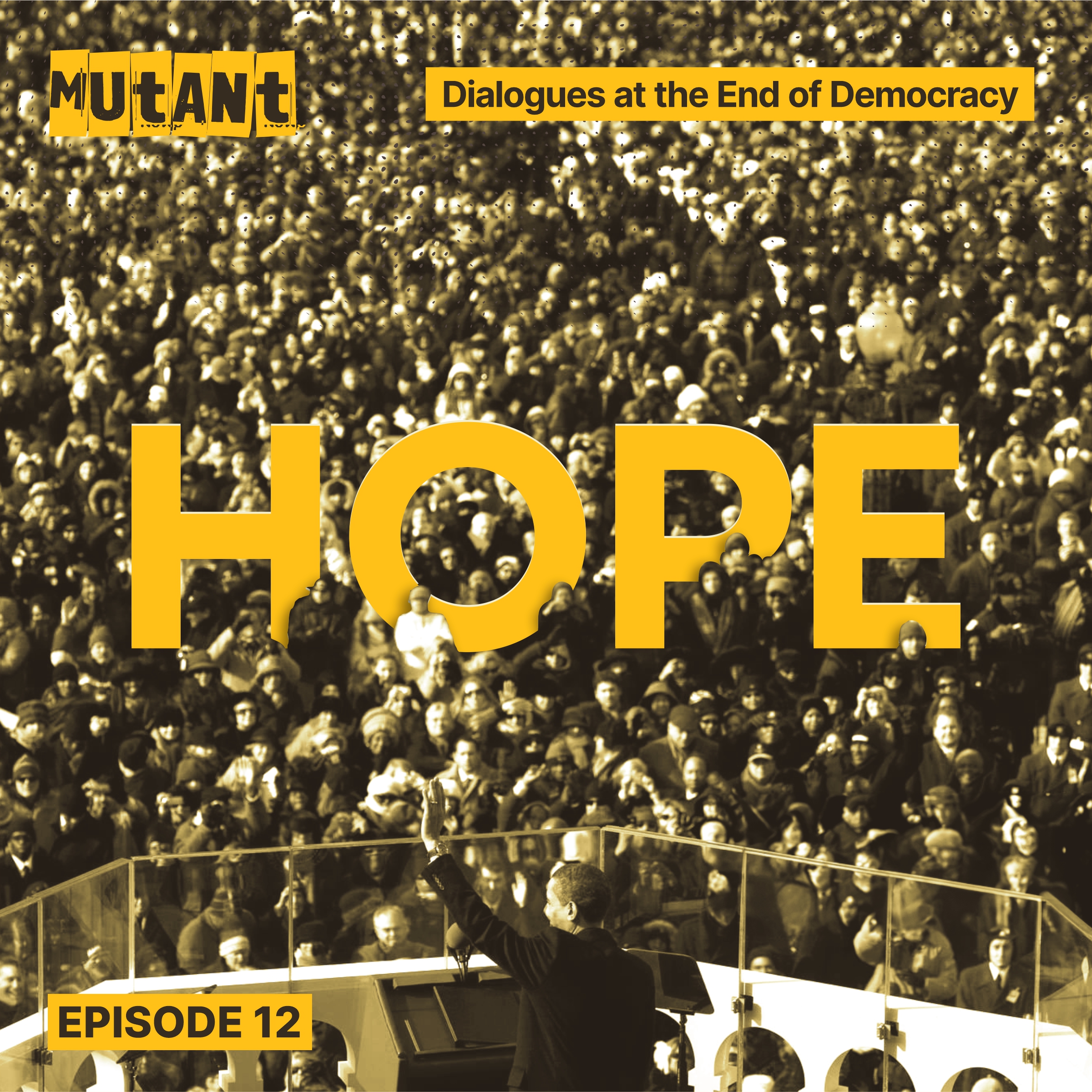
Few words in our political lexicon are as fragile and as paradoxical as hope. Is hope a privilege of the smug? Or is it the helpless, last resort of the inconsolable? Whatever we might think of it, hope is easy to dismiss and yet impossible to fully leave. In fact, hope acquires its greatest gravity, or what B R Ambedkar might call its greatest force, precisely when the circumstances for its existence seem bleakest.
This paradox reveals a fundamental truth about the human condition: that while hope may carry an air of smug power, or exemplify the c...
H | HUMAN
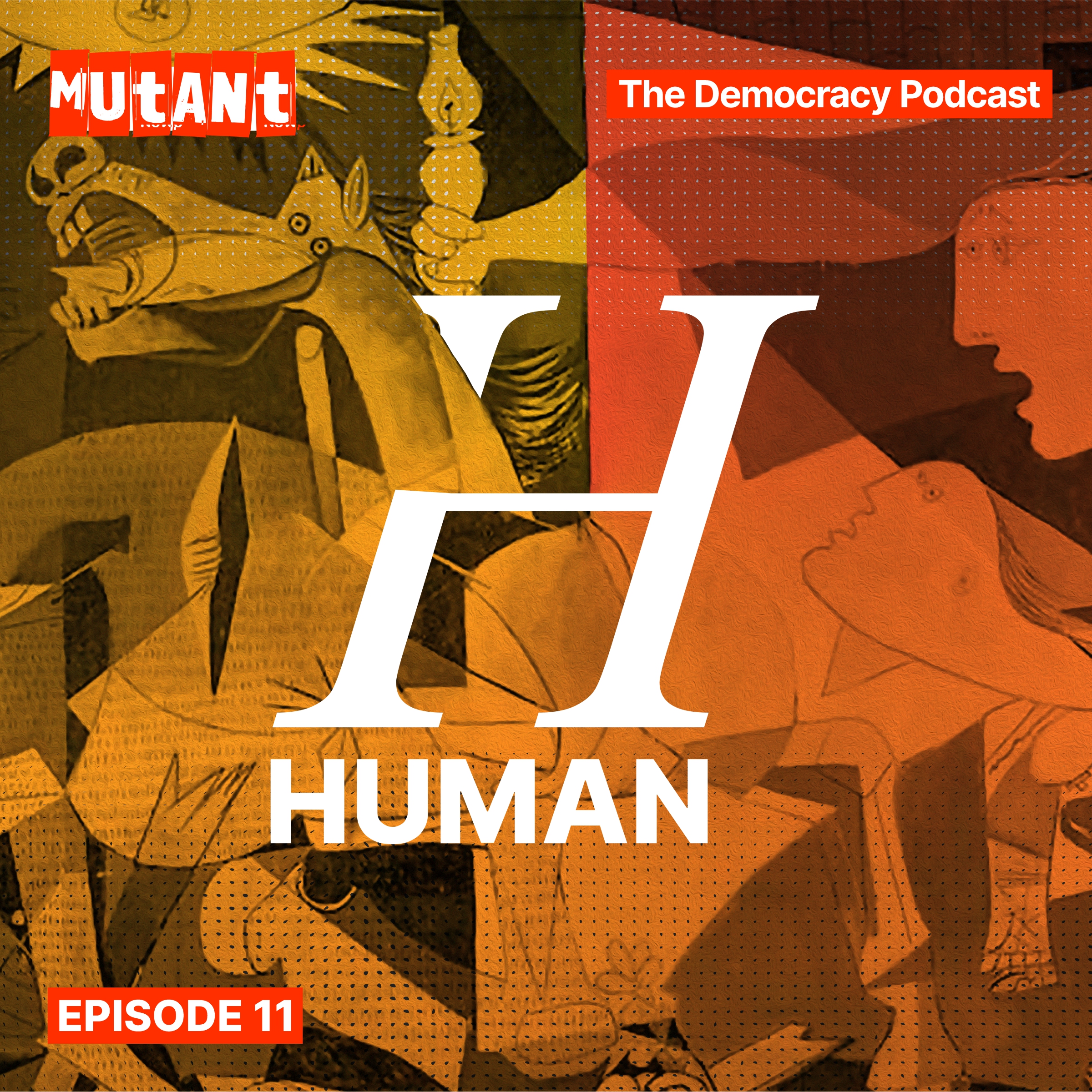
What does it mean to be human? This is a question at once timeless, yet often posited as an abstraction: as though being human and living as humans in the world can be disentangled from each other.
But man's humanity is not something that exists in isolation from other species, from other human beings. “In that sense, the idea of the human rests fundamentally on the belief that to be human is to both be political and social,” says Aishwary Kumar. “If you were to be marooned in the middle of an island with absolutely no one, it wou...
P | PURITY & PUNISHMENT
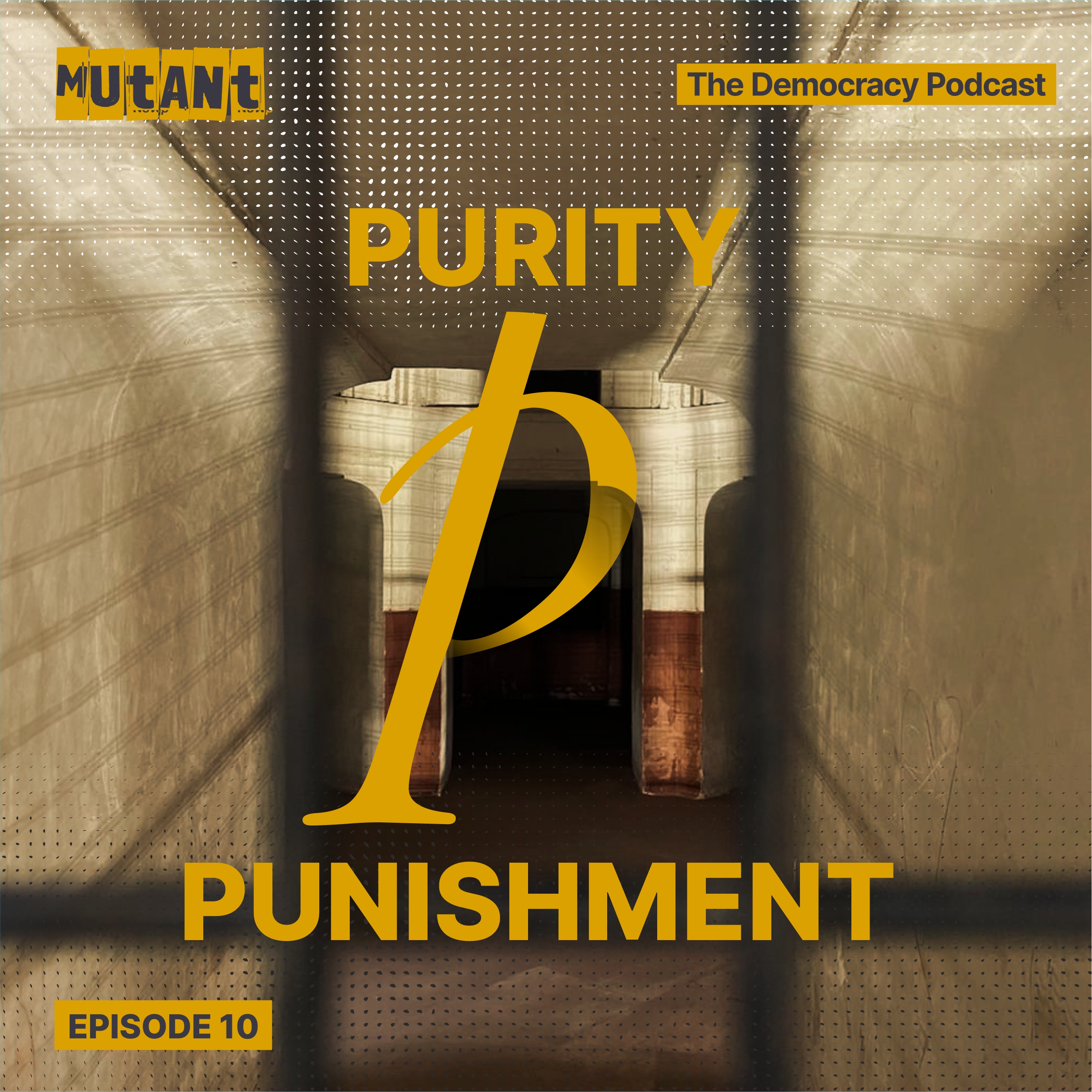
Nothing frames our thinking at Mutant — the very name we have given this dictionary of concepts — more fundamentally than the human drive for purity. After all, by its very constitution, the figure of the mutant — the bearer of our mutations, our mixing, our transgressions, our struggle with finitude — is an antidote to the violence unleashed by political and moral purists. As we begin a decisive year for democracy worldwide, Mutant turns to this pernicious antithesis of our democratic faith: purity and its army of antipolitical high priests who today ransack the corridors and seats of democratic hope.
Always s...
B | BABRI & BODY
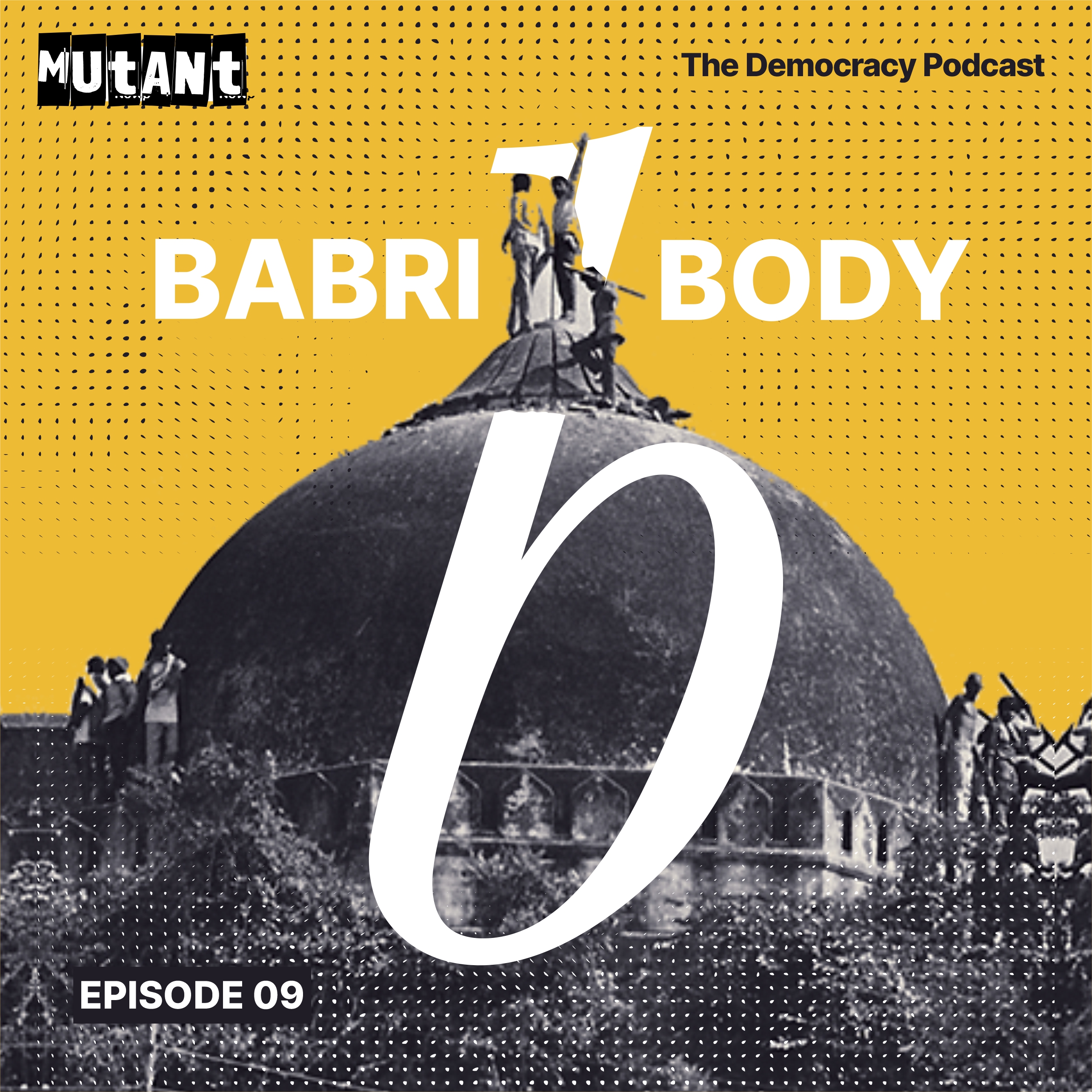
“There is nothing mere about symbols”, says the writer Ta-Nehisi Coates. And “there is nothing mere about the struggle for architecture, about the strife over monuments. They are arenas of war over memory itself,” says Aishwary Kumar, as we undertake an unflinching examination of the event that marked the beginning of an irreversible torsion in the world’s largest democracy: the demolition of the Babri Masjid in Ayodhya, India, on December 6, 1992. It was not just a matter of a medieval relic or a place of worship. It was the matter of political faith and its slow end. "Two defacements came in on...
V | VIOLENCE II
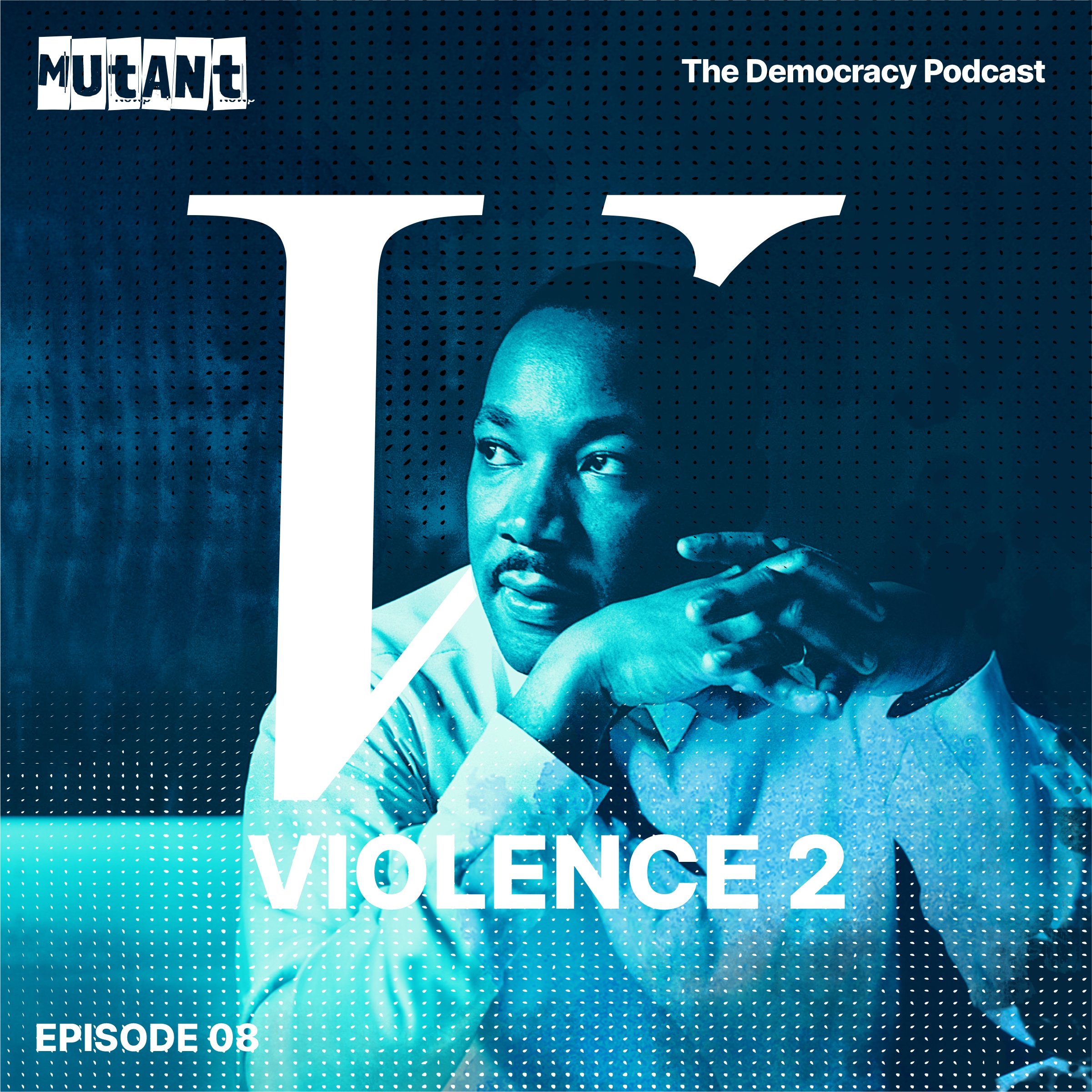
Not only does violence have the capacity to become normative, we also seem to wholly lose our capacity for moral judgement in its wake. So that the moment it appears in front of us, violence immediately destroys all social and political alternatives, as if it were the only choice available to exercise, an inevitable path waiting to be taken.
This is why we fail to ever judge violence; we judge only its perpetrator. We fail to call out militarized rage; we choose instead to mourn its victims after the fact, thereby reproducing the inequality of which violence...
V | VIOLENCE
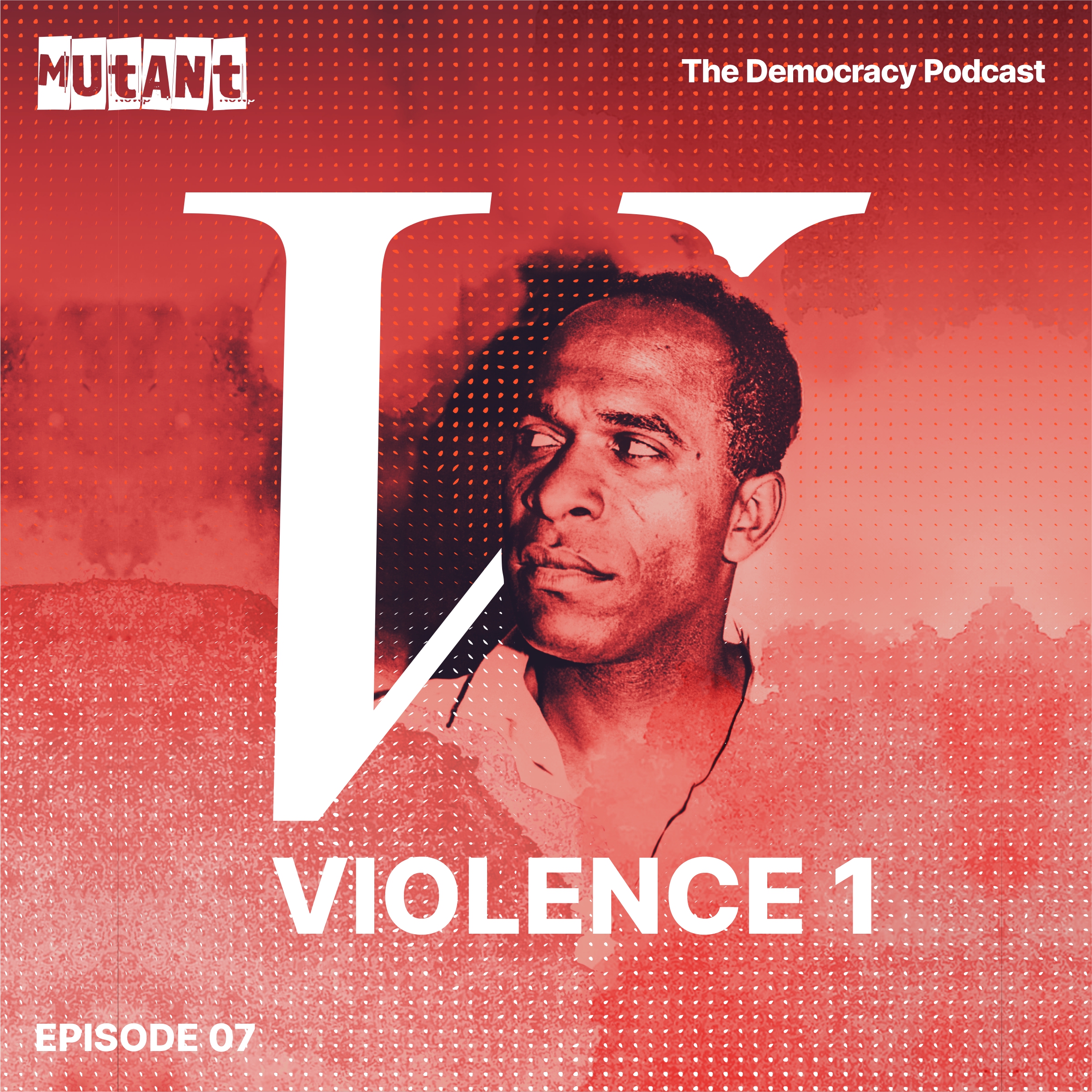
Talking of violence in a time of war can distort rather than clarify our comprehension of it.
On the one hand are the visible and implacable barbarisms of modern conflict waged on land and air, through bombings and blockades, mobilising soldier and satellite to deliver sometimes precise cruelty, sometimes indiscriminate brutality.
On the other is violence’s vaporous history: cloaked in invisibility and silence, embedded in the law in the guise of order, intricately threaded through those civic and civil structures we call the norm and which we excuse by calling it normative.
In...
I | IDENTITY & INDIFFERENCE
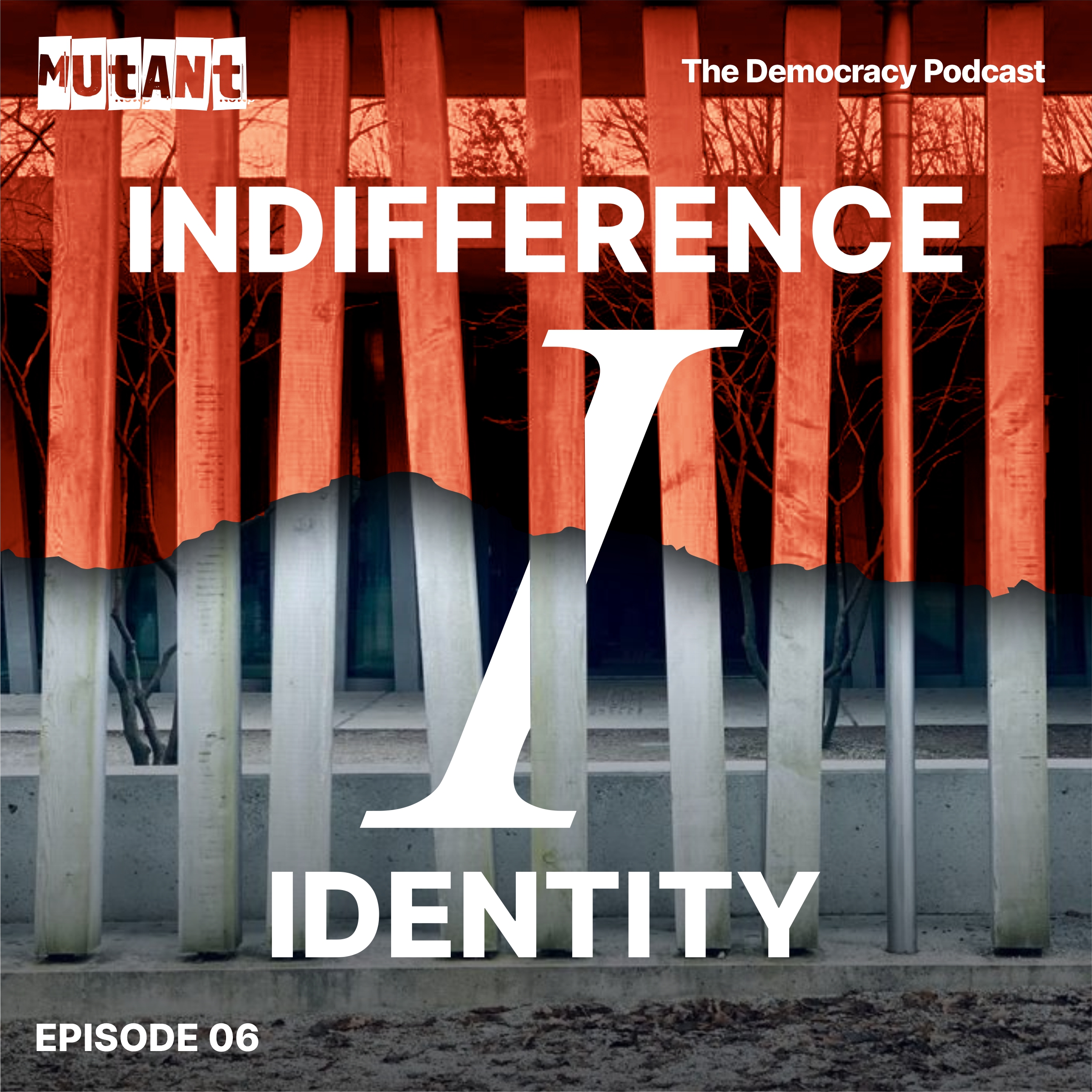
If there are twin pylons on which our democratic deformities today seem to stand, they are identity and indifference. Democracies wage war in the name of the former, but for all the rhetoric surrounding “culture wars”, they do so rarely ever in plain sight. Rather, an uncontrolled war rages on today in silence: by making majoritarian identities disappear into the structure of the ‘normative’ and by rallying masses and movements behind a sanctioned regime of pervasive indifference. An indifference that ironically rests on a profound interest: an active interest in the disregard, in the destruction even, of that in which on...
M | MAJORITY & MASTERY
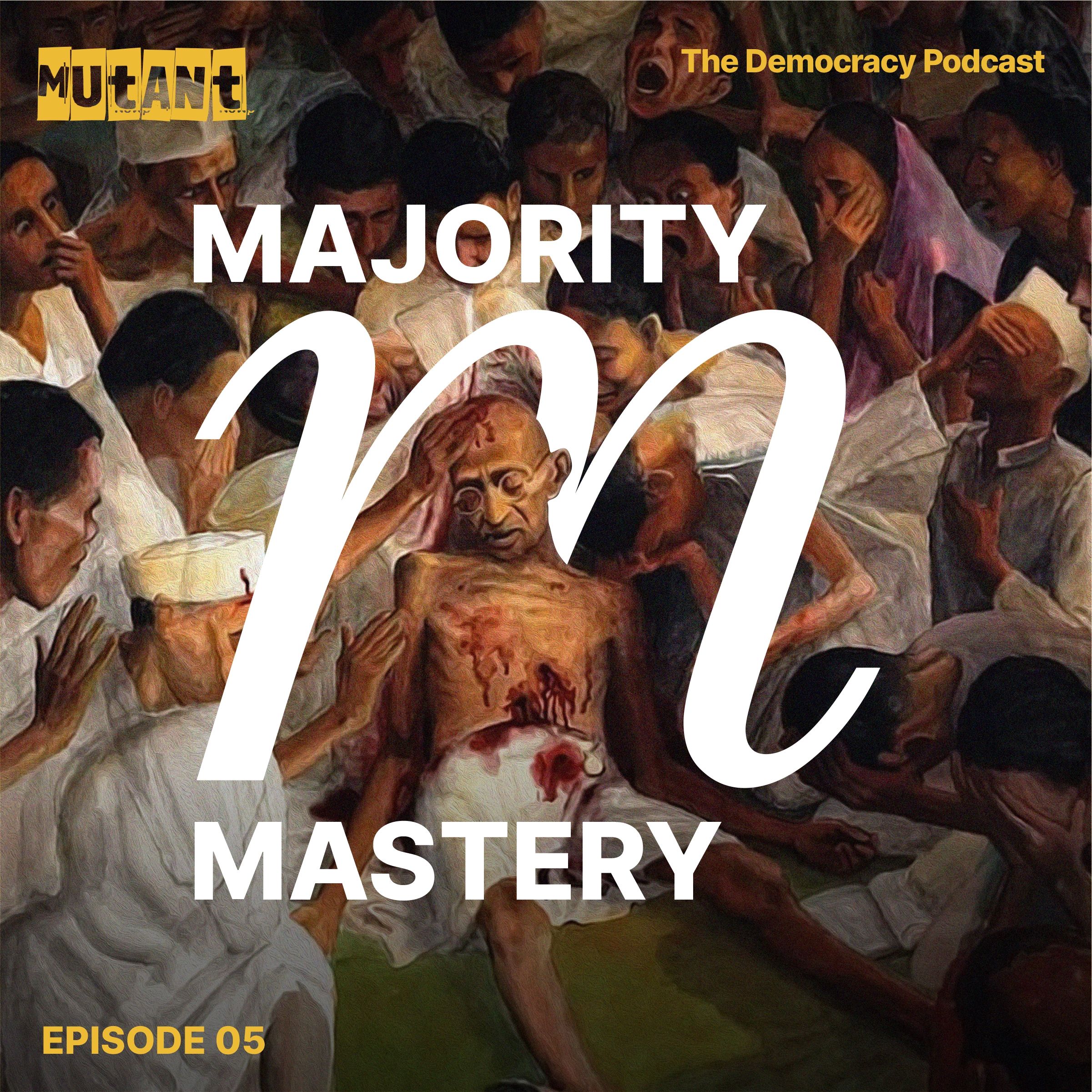
At the heart of the modern democratic contract is the principle — and the faith — that the majority will decide for everyone.
But it is in fact this majority — neither simply a numerical preponderance, nor an ideology — that constitutes the greatest risk of democracy in our time; a moral swerve that is not simply mappable to a caste or economic structure. Rather, it is a complex combination of motivations and desires tethered equally to old conformisms and emerging markets that believes — if it believes in anything at all — in one primary political value. Obedience.
In this episode, Muta...
N | NEGLECT & NEODEMOCRACY
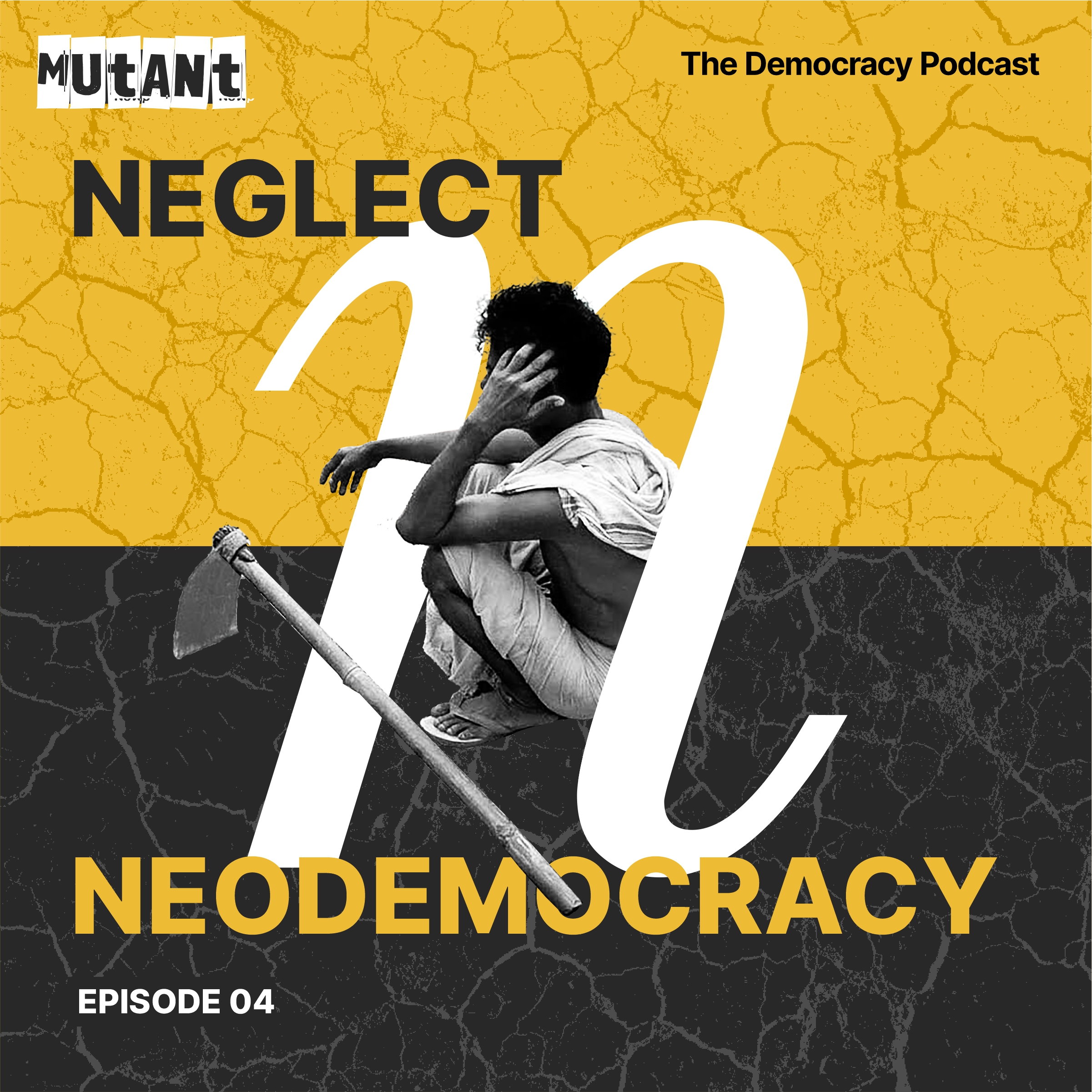
How do ordinary citizens become the foot soldiers, the automatons, the purveyors of evil? How does barbaric cruelty become a civic norm? In her controversial classic Eichmann in Jerusalem, Hannah Arendt gives us a way to understand this pervasive degeneration of our time. She calls it the banality of evil. And it is this banality given democratic license; this turning of neglect into a legitimate doctrine of governance; this virtuosity of brutalism without bloodshed, that Aishwary Kumar identifies as a new mutation in the structure of liberal democracy. Neodemocracy is this political mutant, born at the intersection of cruelty...
L | LAW & LIBERALISM
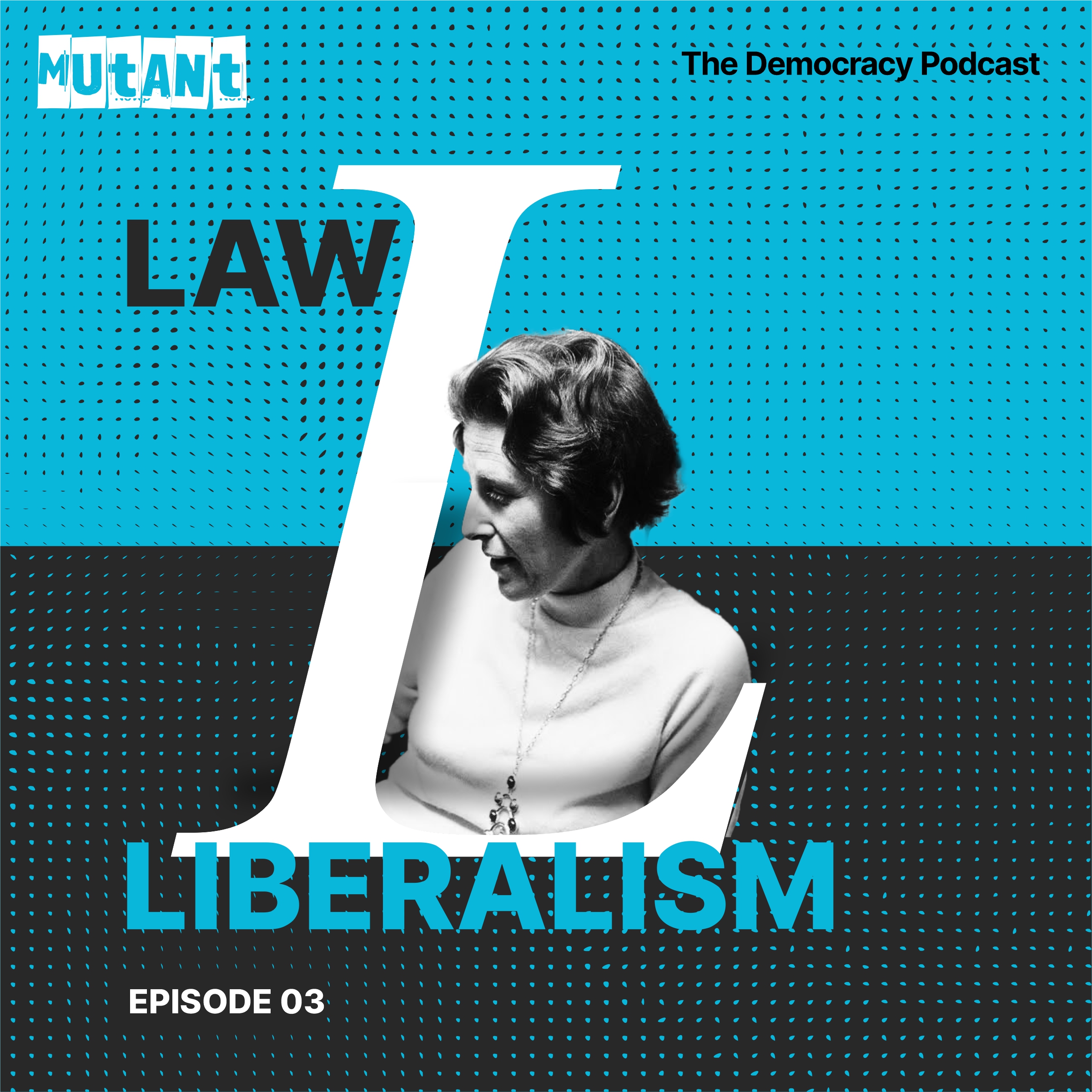
“At the heart of law is not justice but the will to punish. And it is when this will to punish becomes a pervasive political impulse, a mass phenomenon, that we leave democracy and enter what we call neodemocracy: the idea that the law is here not to protect the vulnerable, or be responsible to those who are outnumbered. When punishment becomes the guiding force in and of law, we have left the realm of human freedom. We have entered into what liberals call the rule of law.”
What, Mutant asks, does the law yield? What does the...
C | CONSTITUTION & CRUELTY
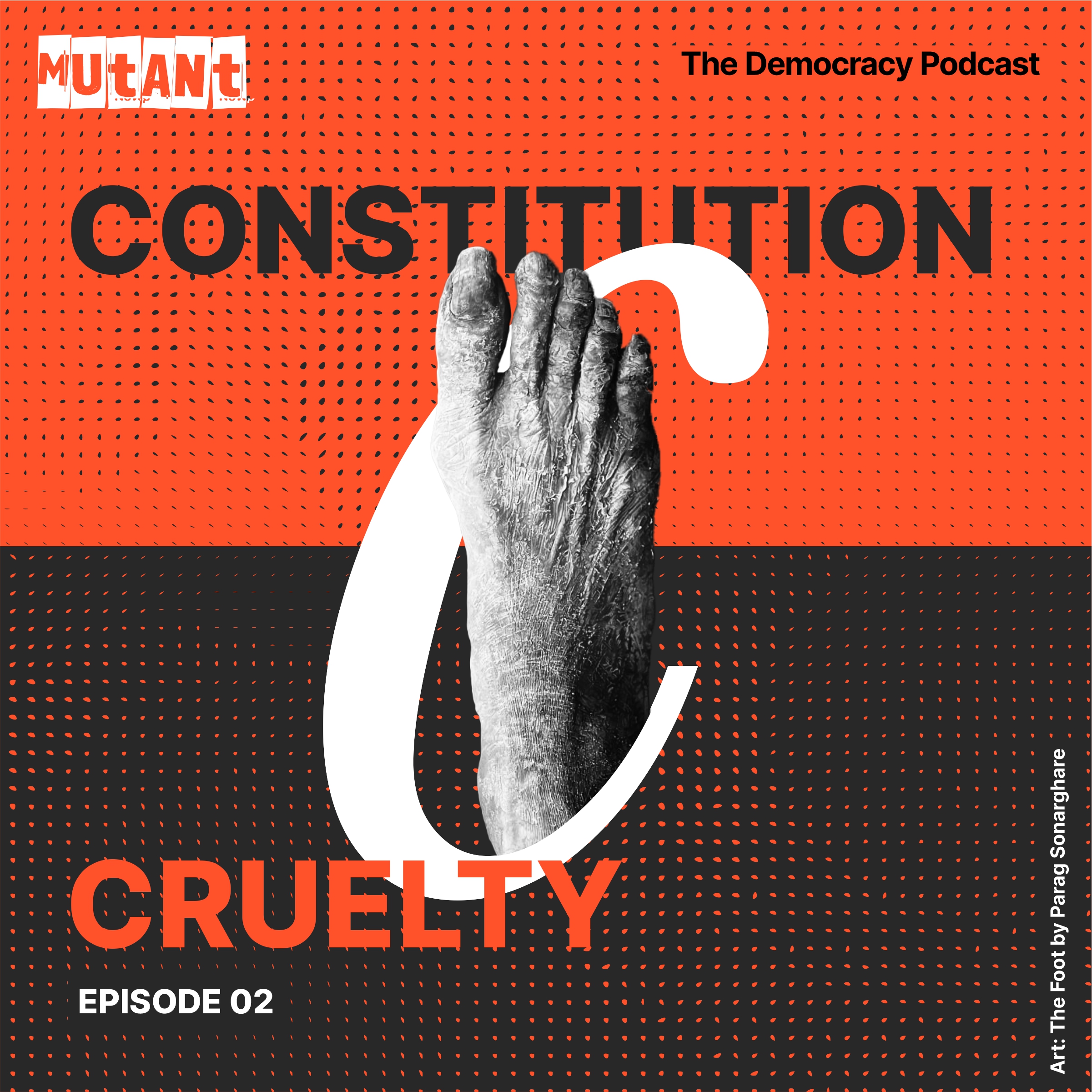
“Some friends say I made the Constitution, but I shall burn it.” — B R Ambedkar
“Ambedkar is a Constitutionalist only because he is a Revolutionary.” — Aishwary Kumar
Why are constitutions the site of our new civil wars? How did we, who live in democracies, become at once more fanatically attached to the words of the constitution and remorselessly barbaric in compromising its very spirit?
Mutant probes the most philosophically knotty, politically charged, and violently contested nucleus of modern democracies: their founding document.
A | ANNIHILATION & AMNESIA
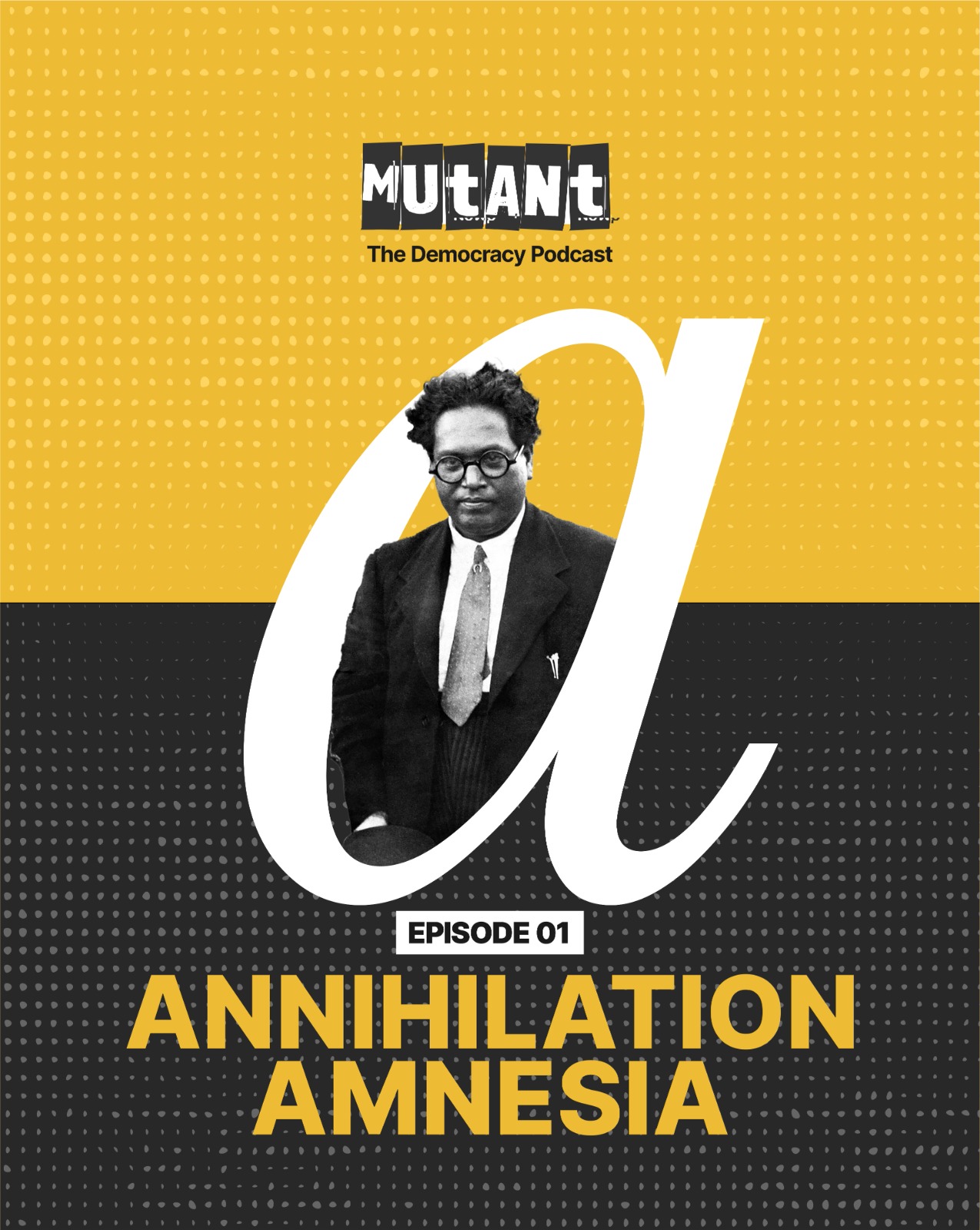
"Annihilation is refusal of the world as it is. Annihilation is destruction of the world as it is. Annihilation is an act of faith. Annihilation, above all, is a refusal of our will to forget. Annihilation, to use B R Ambedkar's word, is "responsibility" to the world as it is."
Aishwary Kumar and Payal Puri examine one of the most morally sophisticated and philosophically complex visions of democracy ever conceived.
BEGINNING: AT THE END OF DEMOCRACY
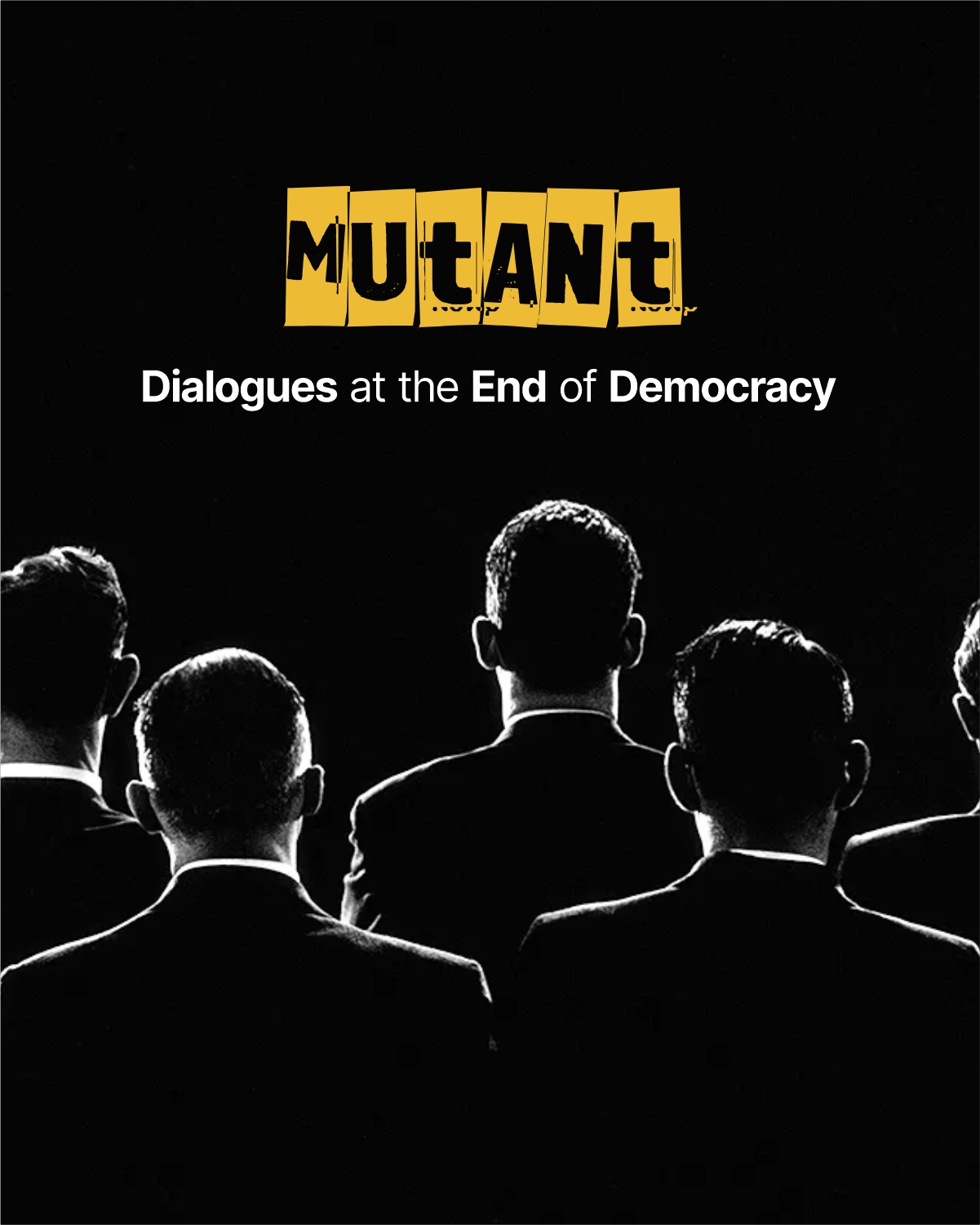
It is today impossible to understand the fragility and violence of democracy’s global life without grappling with the appearance of an unprecedented political form on our horizon. It is a form of politics that marks a catastrophic, cruel perversion — a stolid mutation — in the very structure of our democratic faith. Aishwary Kumar calls this new form, poised at the intersection between constitution and cruelty, neodemocracy. Mutant is the recuperation of those words and concepts that we now need more than ever if we are to comprehend this suicidal moment in global politics, and redeem the moral arc of our universe...
